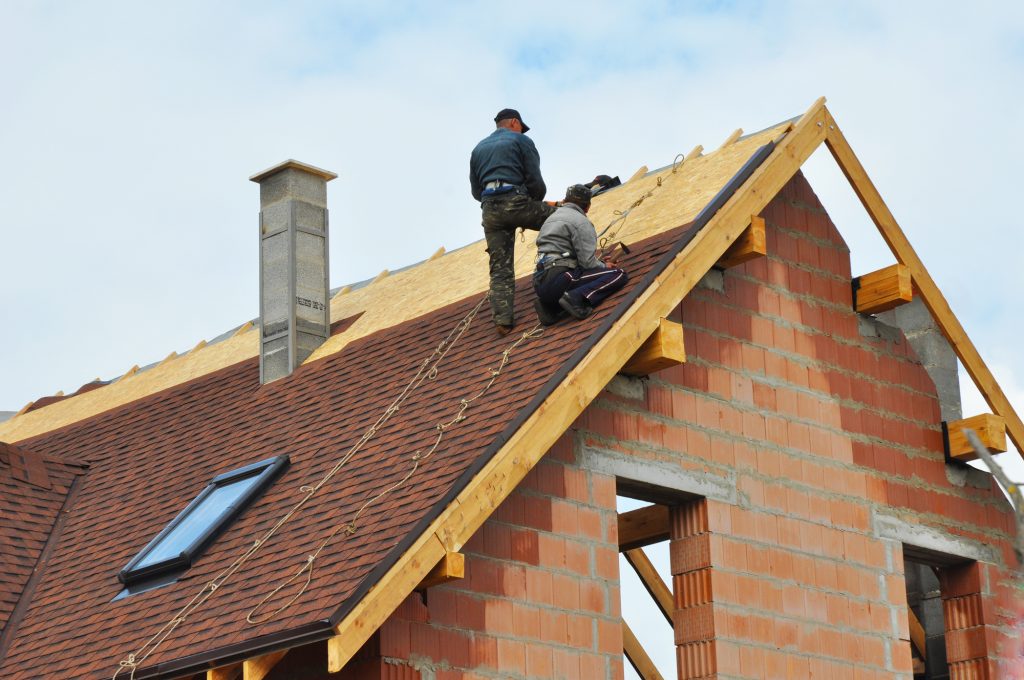Like capital investments promise good returns, the commercial roofing promises protection of commercial buildings. The roof protects commercial spaces from fire, wind hazards and other weather conditions. Since these materials are facing damages from different natural elements, it is evident that the property owner has to take regular and effective measures to increase life cycle of the roofing materials. With timely monitoring of roof’s health the owners can identify small problems with the structure and prevent it from escalating to a huge and costly issue. However, frequent inspections also improve lifespan of the roofing material.
It is advisable for property owners to get the roofs checked twice a year by commercial roofing contractors. One of these maintenance sessions should be scheduled after winter since it is highly likely for the snowfall to irreversibly damage the roof. Heavy snowfall has the capability to weaken the roof and collapse it. Another check should be done before winter sets in to ensure that the roof is strong enough to protect the property from low temperature. If you find any weak spots in the material then immediately get it repaired. Also, check that the drainage system on the roof is working at its optimal level.
A full-fledged roof inspection service from an experienced player such as Southshoreroofingma.com includes sealing pipes, cleaning vents, covering exposed nails, removing accumulated dirt or debris and then doing some minor repairs. Going through this lengthy procedure is helpful since its increases life of roof and avoid costly maintenance jobs too.
What should be inspected before a Roof Maintenance Procedure:
Accumulation of water or moisture for a long period of time leads to premature aging and deteriorates the condition of roofing material. If the water is neglected or not removed on time then it is very likely that leaks will surface. Undetected or untreated leaks slowly rust the metal roof and increase the weight of roof robbing off the strength of the roof.
Bubbles shouldn’t be ignored because if accumulated at a spot, they weaken the roofing material making it unable to withstand the heavy force levied by windstorms or other natural calamities. You should also check if the roof is broken from any side. Every cut on the structure releases some gases which is one of the main causes of bubbles. Performing a roof cut or moisture survey is advisable to avoid moisture related problems.
Another area that demands your attention is roof flashing. These are the strips through which the roofing material is attached with the wall. Installed near the joints and roof endings, the main function of strips is to prevent the water from seeping in to the structure and joints. Any gap in the strips’ structure indicates that the roof cover is weak to withstand heavy flow of water or wind.
Check the roof cover or cracking seams to stop the water from entering the interiors of the roofing structure. A loose or detached lightning protection system can puncture the roof cover in event of heavy or strong winds. Skylights should also be checked for securement. Skylights that are not sealed properly can dislodge during windy situations and allow the rain or debris to enter interiors of the buildings. Therefore, ask the commercial roofing contractor to check condition of skylight while monitoring the roofing material. Cracks in the plastic domed panels are not uncommon at locations where heavy winds and windstorms are frequent. Do check the cracks in panels to ensure the health of the roofing materials.
If you notice any of these signs on your roofs then it’s time to contact an experienced commercial roofing contractor. The contractors are trained to determine the health and strength of the roof and can help you design a maintenance strategy or suggest some tips for the same.

